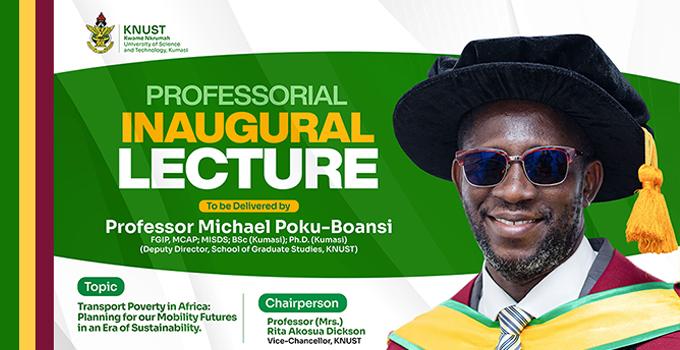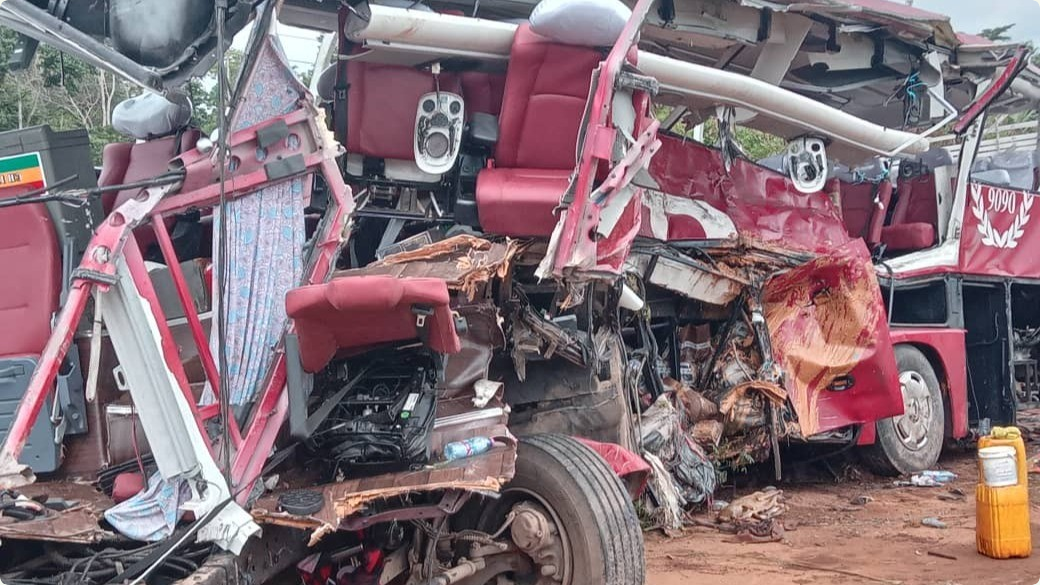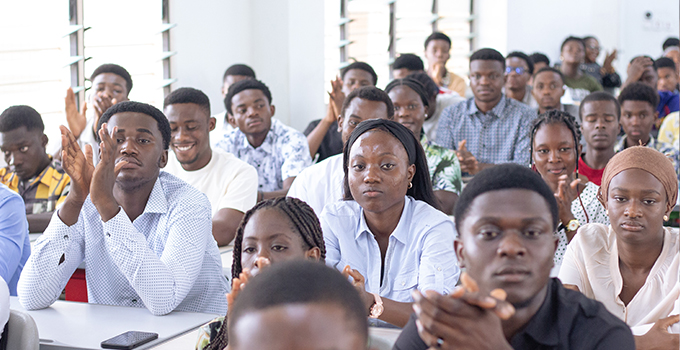Meet Professor Michael Poku-Boansi

Watch the Professorial Inaugural Lecture by Professor Micheal Poku-Boansi
Profile of Professor Michael Poku-Boansi
FGIP; MCAP; MISDS; BSc. (Kumasi); Ph.D. (Kumasi)
Deputy Director, School of Graduate Studies, KNUST
Professor Michael Poku-Boansi is a Professor of Planning at the Department of Planning, Faculty of Built Environment, College of Art and Built Environment, Kwame Nkrumah University of Science and Technology (KNUST), Kumasi, Ghana. As an Urban and Transportation Planner, Professor Michael Poku-Boansi has over a decade of experience in teaching, researching, and providing consultancy and mentorship.
Professor Poku-Boansi hails from Ejisu, in the Ejisu Municipality of the Ashanti region. His parents are Mr. Anthony Yaw Boansi and Mrs. Margaret Boansi of blessed memory. He is the second of five children of his parents. He had his basic education at the Services Primary School at the 1st Battalion Infantry (1BN), Michel Camp, Tema, Junior High School at Ashaiman No. 4 Junior Secondary School and his secondary education at Pope John Secondary School and Junior Seminary, Koforidua. Professor Michael Poku-Boansi obtained his bachelor’s degree in Planning from the Kwame Nkrumah University of Science and Technology in 2003, Settlement Planning Option and his doctoral degree also in Planning from the same University in 2008, after which he had his postdoctoral fellowship at the University of Leeds, United Kingdom. He also obtained funding from the Rockefeller Foundation to participate in the Professional Fellowship Programme in Bellagio, Italy. Prior to commencing his postgraduate education, Professor Poku-Boansi served as a Teaching and Research Assistant in the Department of Planning. He is a Fellow of Unity Hall. Professor Poku-Boansi holds certificates in Security Responsiveness and Financing Development from The Open Learning Campus of the World Bank. He also holds a certificate in Basic Advocacy... Read more!
Abstract of Professor Michael Poku-Boasi's Inaugural lecture
Topic: “Transport poverty in Africa: Planning for our mobility futures in an era of sustainability.”
Poverty is one of the greatest challenges of humanity and the dominant discourse in development thinking, especially in developing countries. It is a key focus of development as it remains number one in the Sustainable Development Goals (Goal 1: No poverty) and a priority area of Africa Union’s Agenda 2063 (Poverty, Inequality, and Hunger). Although poverty is a global phenomenon, it is highly concentrated in sub-Saharan Africa and South Asia. The conceptualisation and operationalisation of poverty, therefore, have evolved to include non-income dimensions even though there are varied views on the expression and operationalisation of the phenomenon. Beyond the indirect contribution, transport infrastructure also has a direct contribution to poverty reduction irrespective of the economic growth channel. However, the contribution of transport infrastructure to poverty reduction appears to depend on its impact on income and non-income dimensions of poverty. In income poverty, transport infrastructure provides different economic opportunities for poor people to raise their income levels through improved productivity from their limited resources... Read more!




